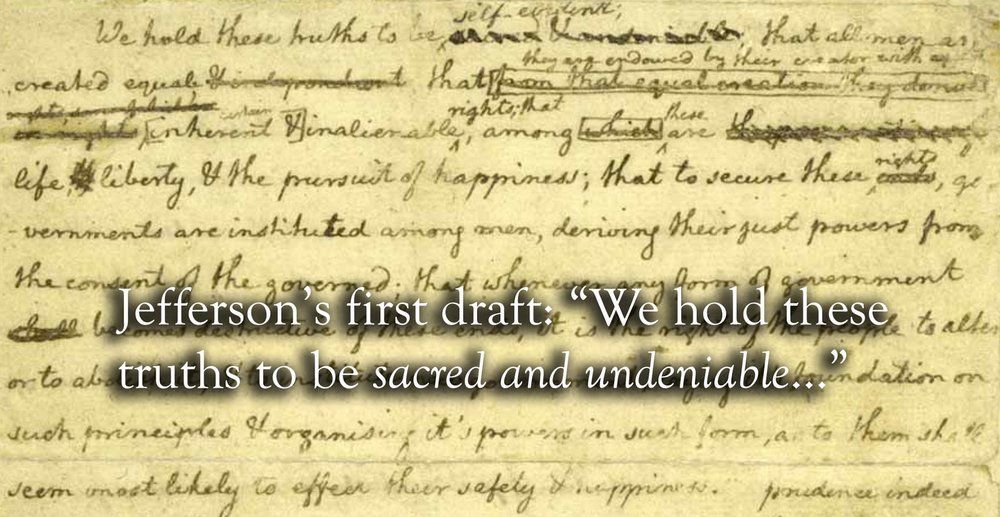
In a wonderful talk by R’ Tzvi Freeman at Maayon Yisroel last night, I learned that Thomas Jefferson’s first draft of the American Declaration of Independence (1776) stated, “We hold these truths to be sacred and undeniable; that all men are created equal…”
Jefferson politely invited Ben Franklin to “be so good as to peruse it, and suggest such alterations as his more enlarged view of the subject will dictate?”
Franklin made few changes, but he crossed out “sacred and undeniable” with heavy backslashes, and substituted “self-evident.”
That edit did not change the rooting of modern liberal democracy in Torah, but it did obfuscate the connection.
The modern idea that government must answer to higher laws than a king (or any human) may legislate was established from Torah and the Rabbinic tradition a century earlier by John Selden, in England.
As a legal philosopher and scholar of Jewish law, his work was crucial to the unseating and eventual execution of King Charles I, and the creation of the English Commonwealth.
As a Quaker, Ben Franklin was especially mindful of the government’s responsibility not to favor one religion over another, but that does not mean our founding fathers were atheists.
Far from it. They derived the right of a people to create a government of the people from an ancient source: Torah.
Why was a higher source necessary? Why not just rely on reason and man’s faculty for agreeing on “self-evident” truths? Because all sorts of abuses emerge from man’s capacity to justify his desires with high-minded words – think Nazism and Communism.
Only Torah has withstood the test of time as a system for organizing the affairs of humans.
As Rabbi Freeman writes, “Who else could determine that, ‘all men are created equal’ other than the One that made them that way? Democracy could work, therefore, because it remained bridled by the law of God.”
Originally published on Facebook
Get the best of Accidental Talmudist in your inbox: sign up for our weekly newsletter.